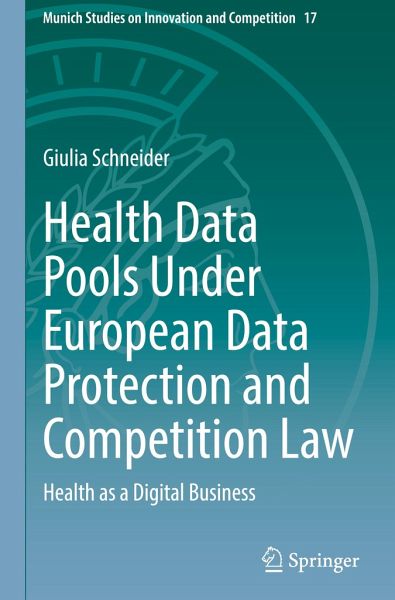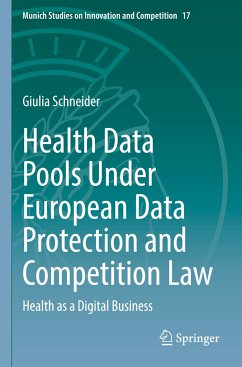
Health Data Pools Under European Data Protection and Competition Law
Health as a Digital Business
Versandkostenfrei!
Versandfertig in 6-10 Tagen
106,99 €
inkl. MwSt.
Weitere Ausgaben:

PAYBACK Punkte
53 °P sammeln!
This book explores the emerging economic reality of health data pools from the perspective of European Union policy and law. The contractual sharing of health data for research purposes is giving rise to a free movement of research data, which is strongly encouraged at European policy level within the Digital Single Market Strategy. However, it has also a strong impact on data subjects' fundamental right to data protection and smaller businesses and research entities ability to carry out research and compete in innovation markets. Accordingly the work questions under which conditions health da...
This book explores the emerging economic reality of health data pools from the perspective of European Union policy and law. The contractual sharing of health data for research purposes is giving rise to a free movement of research data, which is strongly encouraged at European policy level within the Digital Single Market Strategy. However, it has also a strong impact on data subjects' fundamental right to data protection and smaller businesses and research entities ability to carry out research and compete in innovation markets. Accordingly the work questions under which conditions health data sharing is lawful under European data protection and competition law. For these purposes, the work addresses the following sub-questions: i) which is the emerging innovation paradigm in digital health research?; ii) how are health data pools addressed at European policy level?; iii) do European data protection and competition law promote health data-driven innovation objectives, and how?;iv) which are the limits posed by the two frameworks to the free pooling of health data? The underlying assumption of the work is that both branches of European Union law are key regulatory tools for the creation of a common European health data space as envisaged in the Commissions 2020 European strategy for data. It thus demonstrates that both European data protection law, as defined under the General Data Protection Regulation, and European competition law and policy set research enabling regimes regarding health data, provided specific normative conditions are met. From a further perspective, both regulatory frameworks place external limits to the freedom to share (or not share) research valuable data.












